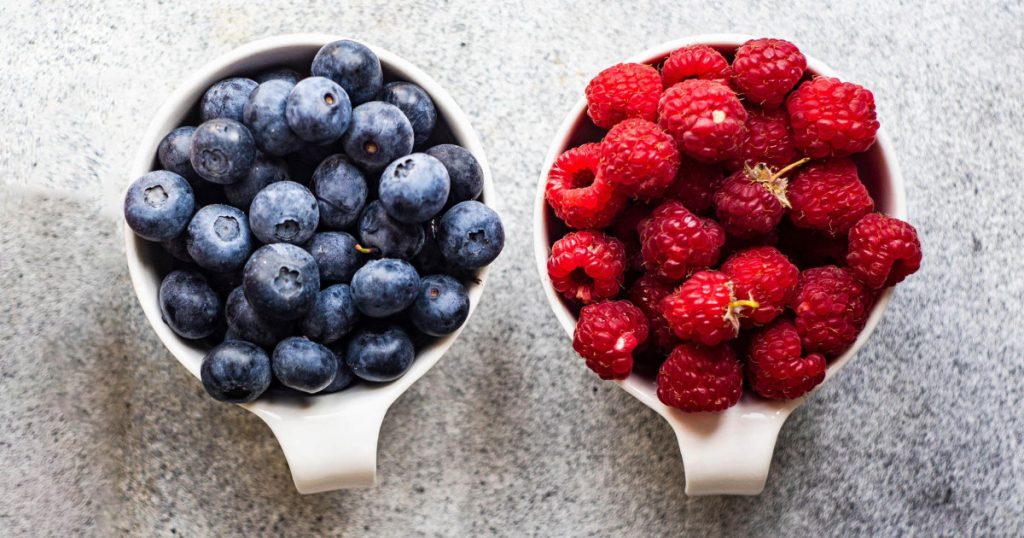Berries are known for being both delicious and nutritious, earning them the nickname “nature’s candy.” Blueberries and raspberries are two of the healthiest berries available, providing a range of healthy nutrients such as fiber, antioxidants, and vitamin C while being relatively low in calories. Both berries offer a variety of health benefits and are recommended by experts for regular consumption due to their nutritional value.
In terms of fiber content, raspberries outshine blueberries as a single cup of raspberries contains double the amount of fiber compared to a cup of blueberries. Fiber is essential for digestion, gut health, managing blood sugar levels, cholesterol, and weight. Raspberries are considered the highest whole-food source of fiber, providing nearly a third of the daily recommended intake of fiber in just one cup. This makes raspberries an excellent choice for individuals looking to increase their fiber intake for overall health benefits.
While both blueberries and raspberries contain antioxidants, blueberries have been the subject of more research due to their anthocyanin content. Anthocyanins are plant pigments with antioxidant and anti-inflammatory properties, which have been linked to reducing the risk of heart disease and type 2 diabetes. Blueberries are frequently recommended for maintaining brain health and are a core component of the MIND diet that has been associated with Alzheimer’s prevention. Raspberries also contain antioxidants that support overall health and wellness.
Both blueberries and raspberries are rich in essential nutrients such as vitamin C, which boosts the immune system and acts as an antioxidant. Raspberries provide a higher amount of vitamin C compared to blueberries, offering nearly half of the recommended daily intake in just one cup. Additionally, both berries contain vitamin K, with blueberries containing a higher percentage of the daily recommended amount. Vitamin K plays a crucial role in blood clotting and bone health.
When deciding between blueberries and raspberries, both berries offer unique health benefits and can be incorporated into a balanced diet. Raspberries are an excellent choice for individuals looking to increase their fiber intake, while blueberries provide a significant antioxidant boost. Both berries can be enjoyed alone or combined in various dishes, such as yogurt, cottage cheese, or smoothies. Frozen berries are also a nutritious option, as they are typically frozen at their peak freshness, potentially retaining their nutritional value.
Ultimately, both blueberries and raspberries are considered nutrition powerhouses that offer a range of health benefits. Choosing between the two berries depends on individual health and nutrition goals. Whether you prefer the fiber content of raspberries or the antioxidant properties of blueberries, adding either berry to your diet can contribute to overall health and well-being. Enjoying a variety of berries can help diversify your nutrient intake and support a healthy lifestyle.


